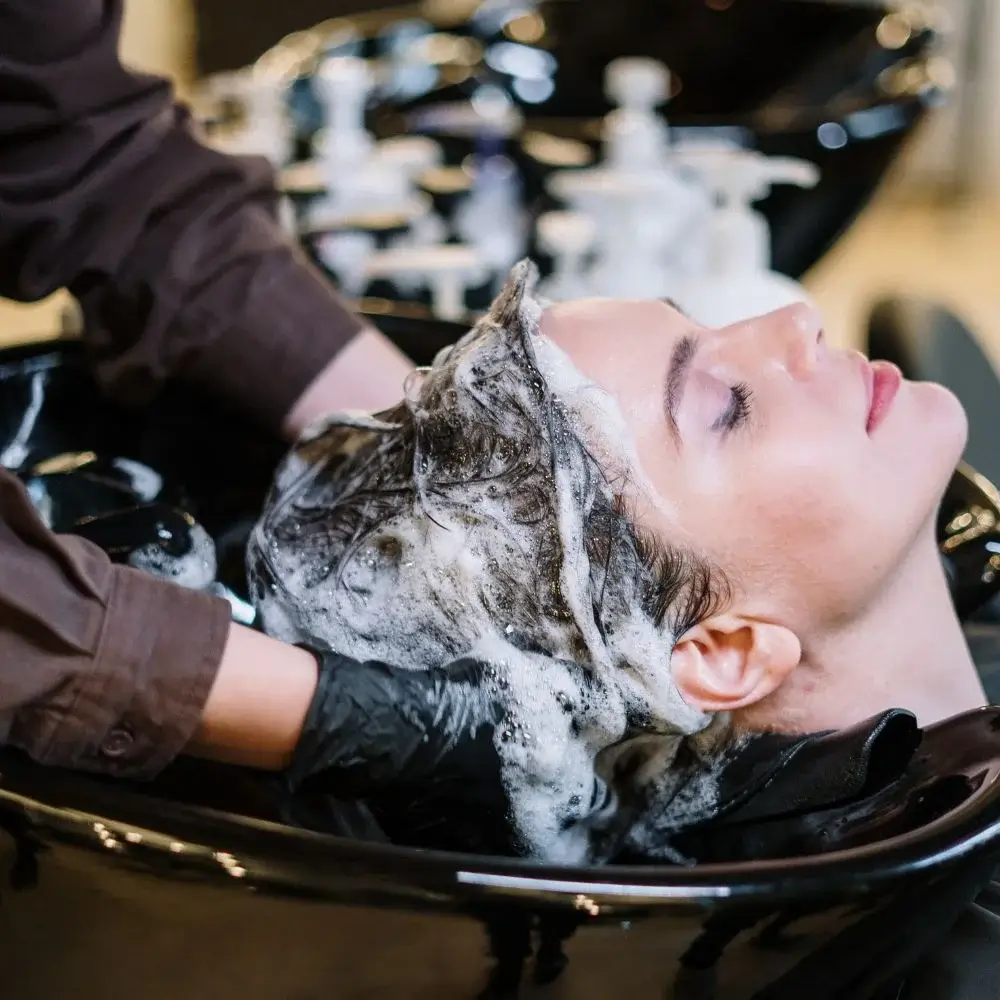Did you just move to an area with soft water and don't know how to choose the right shampoo? Worry not because we have you covered. Soft water can be a blessing, especially for your hair, as it doesn't contain hard minerals like calcium and magnesium. However, using the wrong shampoo may make your hair limp and greasy. This blog post will discuss choosing the right shampoo for soft water.
Firstly, it's essential to understand the ingredients you must avoid when looking for shampoo for soft water. The usual culprits are sulfates, silicones, and heavy oils like olive and coconut. These ingredients can weigh down your hair, leaving it greasy and limp. Look for shampoos that contain light oils like argan, jojoba, and sweet almond oils. They help to nourish your hair without making it heavy.
Secondly, read the labels on the shampoo bottles carefully. Labels can be overwhelming, with various terms that are hard to understand. However, focus on the three crucial categories: cleansing, hydration, and repair. For soft water, look for hydrating shampoos that contain natural ingredients like aloe vera, shea butter, and honey. These ingredients provide moisture to your hair, making it soft and manageable.
Thirdly, consider your hair type when looking for the right shampoo for soft water. Some shampoos cater to specific hair types like curly, colored, or fine hair. For curly hair, consider sulfate-free shampoos, as they help lock in moisture and define curls. For colored hair, look for color-safe shampoos with UV protection. For fine hair, look for weightless shampoos that don't contain heavy ingredients.
Fourthly, don't be afraid to experiment with different brands and products. What may work for someone else may not work for you. Start with travel-size packs so you don't invest much money in a product that may not work for you. Keep track of the shampoos that work and those that don't so you can make informed decisions in the future.
Finally, consider consulting a professional hairstylist for recommendations. They have the experience and knowledge to help you make informed decisions about your hair. They can also suggest products and techniques they have tried and reviewed.
Choosing the right shampoo for soft water doesn't have to be overwhelming. Avoid sulfates, silicones, and heavy oils; look for hydrating, natural, and light ingredients. Read labels carefully and consider your hair type when making a decision. Don't be afraid to experiment with different products; consult a hairstylist who can guide you along the way. These tips give you soft, beautiful, and healthy hair.
Having soft water may be great for drinking, but when it comes to washing and styling your hair, it can be a real pain. We know how frustrating it can be to spend money on expensive shampoos and conditioners only to discover that they don't work well with your soft water. That's why we've researched and found the best shampoo for soft water. With just one click of a link, you can discover your next favorite shampoo that will leave your hair feeling soft, silky, and manageable. Don't let soft water ruin your hair game any longer; try out the best shampoo for soft water today!
What are the characteristics of the best shampoos for soft water?
The finest shampoos for soft water possess a unique blend of characteristics that effectively mitigate their distinctive effects on hair. These shampoos are delicately formulated to strike a balance between cleansing and moisturizing. They perform gentle yet thorough cleansing, removing dirt and impurities while retaining the natural oils essential for hair health. Besides, these shampoos excel at providing the necessary hydration that prevents the potential dryness associated with soft water. Often enriched with conditioning agents, they ensure that hair maintains its inherent shine, texture, and manageability even in softened water.

What ingredients should I look for in a shampoo for soft water?
When scrutinizing the ingredient list of shampoos suitable for soft water, several vital components stand out for their beneficial effects on hair health. Look for nourishing oils like argan and coconut, which offer deep moisturization, restoring the hair's vitality, and strengthening proteins like keratin and silk work to fortify the hair's structure, preventing breakage and promoting resilience against the potential weakening effects of softened water. Humectants such as glycerin and hyaluronic acid help lock in moisture, combating the dryness that can arise from using soft water. Furthermore, vitamins like B5 and E contribute to overall hair health, promoting shine and manageability.

What are the common issues faced with soft water and hair?
Soft water, while often considered gentle, can give rise to common hair-related challenges. Hair might appear lackluster, devoid of its usual vibrancy, and prone to losing volume due to the excessive softening effect. This effect can lead to hair feeling flat and less manageable. Moreover, softening water might remove natural oils from the hair, potentially resulting in dryness and an uncomfortable scalp. Notably, using hair dye and styling products can be less effective in softened water, causing color fading and diminishing the efficacy of styling efforts.

How does soft water differ from hard water regarding mineral content?
The mineral composition is the fundamental distinction between soft and hard water. Soft water contains fewer mineral ions, such as calcium and magnesium, than its complex water counterpart. This dissimilarity results from the softening process, which aims to reduce mineral content. While hard water can lead to mineral buildup, causing hair to become weighed down and potentially contributing to dandruff, soft water's lower mineral content can render hair overly soft. This can result in challenges like reduced volume and manageability.

How do I identify if my hair is negatively impacted by soft water?
Detecting the adverse effects of soft water on your hair involves recognizing sure telltale signs. If your hair consistently feels exceedingly soft, appears limp, lacks the usual volume, and presents a dull aspect even after washing, these could be indicators of issues related to soft water. Moreover, heightened dryness, increased frizz, and a noticeable decline in the vibrancy of hair color can be further signs that softened water might be negatively affecting the health and appearance of your hair.
Should I use a shampoo specifically designed for soft water, even if I have normal hair?
Opting for a shampoo explicitly formulated for soft water is prudent, even if your hair type is standard. These specialized shampoos are carefully crafted to counteract the potential adverse effects of softened water on hair, making them suitable for various hair types. By providing the essential balance of cleansing and hydration, these shampoos ensure that your hair maintains its natural strength, vibrancy, and manageability, irrespective of whether it is normal, dry, oily, or falls within any other category. This proactive approach contributes to your hair's sustained health and aesthetic appeal.







